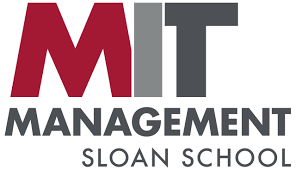MITSloan: Leadership Development Is Failing Us. Here’s How to Fix It
Featured article for this week's Brief
Read time: 4 min
Photo by Mathias Jensen on Unsplash
Big Idea
Many leadership development programs fail to yield meaningful results - 70% only measure participants' positive reactions, not increased capabilities. More rigorous evaluation is needed on a program's vision (the capabilities it aims to develop), method (curriculum and teaching approaches), and impact (outcomes for participants). Asking better questions can clarify if these elements, and their integration, are designed effectively. For example, only a few programs can link to outcomes like changes in participants' career trajectories or organization-level performance.
Top Thoughts
A survey of business school leadership development programs revealed most cannot show how their design and assessment achieve desired impacts. They focus on satisfaction and short-term knowledge gains rather than increased capabilities.
Effective leadership development requires properly developing and integrating three elements: the intended outcomes, the teaching methods to achieve them, and evaluation of impacts on participants.
Several poor but common practices, like emphasizing entertainment value over utility and comfort over effortful learning, undermine the effectiveness of many programs.
Leaders should evaluate programs based on evidence they yield long-term behavioral change and capability improvements relevant to organizational needs, not only participant satisfaction or eased attitudes.
Decision-makers often lack rigor in asking the right questions to assess program vision, curriculum design, expected outcomes, and whether elements are aligned. This often leads to choosing ineffective programs.
Program sponsors and developers must form stronger partnerships to transform program objectives, commit to evidence-based evaluation, and link results to organizational goals - even when this causes participant discomfort.
People responsible for program investment, like executives and HR, should apply a venture capital mindset, not funding programs unless returns can be well-justified.
True leadership development requires complex, effortful experiences that yield deep, sustainable learning relevant to real work - comfort and ease should not be driving factors.
Changing beliefs rarely changes behaviors; programs should be evaluated on actual post-program on-the-job behavior change, which is possible even without shifting attitudes.
Those leading development efforts should have courage to refuse spending budgets on programs that can’t demonstrate sufficient potential; well-justified patience may increase future support.
Quick Quotes
“Few program directors we surveyed could identify how the design and evaluation of their leadership development offerings consistently meet scientific standards of desired impact.”
“Good leadership development requires attention to three core elements — a program’s vision, method, and impact — and the integration between them."
"Just a few good questions about a program, and careful parsing of the answers, can clarify how well each of these elements is designed and aligns with the others — and lead to significantly better decisions."
"A leadership development program should be fundamentally about the growth of participants… An effective one will increase participants’ knowledge, skills, or abilities."
"There’s also little reason to think you’ll reach a desired destination if you don’t have an effective plan for getting there."
"If something is important enough to merit significant investment, it’s also likely to be complicated enough that efficacy must be prioritized over ease."
"We know from both experience and the literature that growth comes through crucible experiences of trial and tribulation, not from being comfortable in the moment."
"Changing what people say they believe is seldom the ultimate vision of an LDP, and it’s often a poor proxy for how they subsequently behave."
"Producing underwhelming results with the budgeted amount doesn’t compel future investment; rather, it undermines it by reinforcing skeptics’ beliefs that the returns aren’t worth the expense."
Actionable Advice
Re-evaluate your current leadership development programs - ask direct questions about their vision, curriculum design, and how outcomes are measured to see if elements are properly integrated and focused on capability building rather than just satisfaction.
Require all new program providers to evidence how their offerings will directly improve leadership skills relevant to organizational needs and detail how those improvements will be assessed after the program.
Insist a percentage of any external leadership development partner's fees be tied to measurable post-program performance outcomes for participants.
Implement a formal process to track if and how participants are applying learned behaviors from leadership programs to their real work. Reward demonstrated skill application.
Survey employees about the most pressing leadership challenges and gaps holding back performance; require new development programs directly address these areas with appropriate methods.
Allow some budget allocation for leadership development to go unused if current program options aren't adequately rigorous or results-focused; make the case for patience yielding future returns.
Promote crucible assignments outside leaders' comfort zones, such as project turnarounds or cross-functional roles, to create growth opportunities aligned with program training.
Source(s)
Leroy, H., Anisman-Razin, M., & Detert, J. (2024, Winter). Leadership Development Is Failing Us. Here's How to Fix It. MIT Sloan Management Review. (link)




